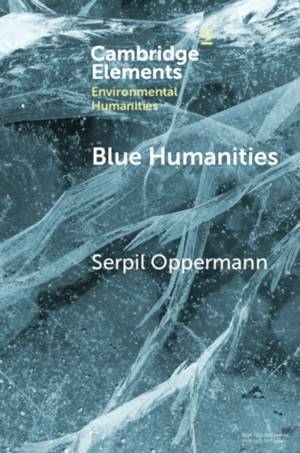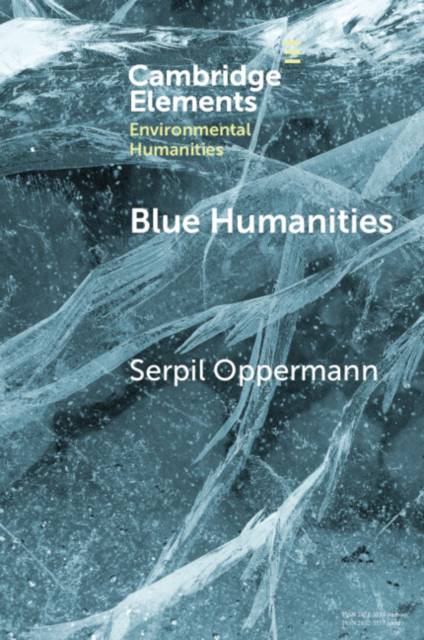
- Afhalen na 1 uur in een winkel met voorraad
- Gratis thuislevering in België vanaf € 30
- Ruim aanbod met 7 miljoen producten
- Afhalen na 1 uur in een winkel met voorraad
- Gratis thuislevering in België vanaf € 30
- Ruim aanbod met 7 miljoen producten
Zoeken
Omschrijving
By drawing on oceanography (marine sciences) and limnology (freshwater sciences), social sciences, and the environmental humanities, the field of the blue humanities critically examines the planet's troubled seas and distressed freshwaters from various socio-cultural, literary, historical, aesthetic, ethical, and theoretical perspectives. Since all waterscapes in the Anthropocene are overexploited and endangered sites, the field calls for transdisciplinary cooperation and encourages thinking with water and thinking together beyond the conventions of tentacular anthropocentric thought. Working across many disciplines, the blue humanities, then, challenges the cultural primacy of standard sea and freshwater narratives and promotes disanthropocentric discourses about water ecologies. Engaging with the most pressing water problems, this Element contributes to those new discursive practices from a material ecocritical perspective. The authors' hypothesis is that fluid-storied matter and the new stories we tell can change the game by changing our mindset.
Specificaties
Betrokkenen
- Auteur(s):
- Uitgeverij:
Inhoud
- Aantal bladzijden:
- 75
- Taal:
- Engels
- Reeks:
Eigenschappen
- Productcode (EAN):
- 9781009393270
- Verschijningsdatum:
- 10/08/2023
- Uitvoering:
- Paperback
- Formaat:
- Trade paperback (VS)
- Afmetingen:
- 152 mm x 229 mm
- Gewicht:
- 122 g

Alleen bij Standaard Boekhandel
+ 63 punten op je klantenkaart van Standaard Boekhandel
Beoordelingen
We publiceren alleen reviews die voldoen aan de voorwaarden voor reviews. Bekijk onze voorwaarden voor reviews.











